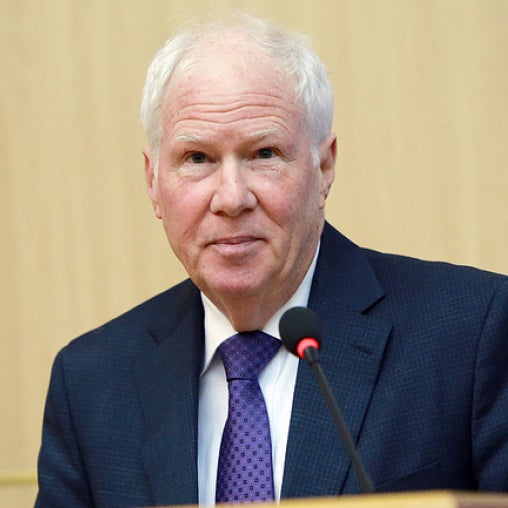November 19, 2020
This piece originally appeared in RNS.
In a decade that has witnessed lethal attacks on Jews across Europe, thousands of incidents of physical and verbal harassment, and a torrent of antisemitic invective on social media, it is not surprising that many European Jews are questioning whether they have a future where they live.
Now another threat to Jewish life, though barely mentioned, has arisen: efforts to ban the practice of circumcision, a Jewish ritual that originated in biblical times and is still considered a religious obligation among nearly all Jews around the world.
The rite of circumcision — brit milah in Hebrew — takes place when the infant child is 8 days old. It is performed by someone trained in the procedure known as a mohel and takes place in the synagogue or family home. It is an occasion for celebration and brings together relatives and friends. Muslims also practice circumcision, although not before the child is already a young boy.
The Danish Parliament will vote soon on a motion to ban circumcision in Denmark. Similar legislation is expected in the coming months in Finland and Belgium. In recent years legislators and activists in Iceland, Germany and Sweden have attempted to prohibit the practice.
What is going on?
Infant circumcision is a common practice in the United States, where a majority of newborn males are circumcised in hospitals before being discharged. Studies conducted by the American Academy of Pediatrics and the Centers for Disease Control and Prevention report it to be a simple and safe medical procedure that provides additional protection against sexually transmitted diseases.
But circumcision is not common in Europe, and most people are unaware of it. Their first understanding often comes from anti-circumcision activists and self-identified children’s rights defenders who claim it is an act of disfigurement and mutilation. In fact, some compare it to female genital mutilation, a barbaric procedure that is banned in most countries.
What these opponents of the practice don’t discuss is circumcision as a religious practice, likely because European countries have strong provisions protecting freedom of religion and belief, which one might imagine would prevent any outright ban.
But Western Europeans are also strongly secular and tend to view organized religion with skepticism and even disdain. Several years ago, the Netherlands was poised to adopt a ban on religious slaughter of animals, a parallel if lesser concern to Jews and Muslims who require kosher and halal food. One Jewish leader who was heading community efforts to prevent its passage told me a religious freedom defense would not convince anyone. “I am sure more Dutch citizens believe in animal rights,” he said.
There is little doubt that anti-Muslim animus also plays a role in the current anti-circumcision campaign. The politicians leading the charge in the Finnish Parliament are members of a right-wing, nationalist party well-known for attacking Muslims but with little interest in children’s rights.
Considering the population size, there are certainly many more Muslim than Jewish circumcisions taking place in Europe. The president of the Conference of European Rabbis says Jews are “collateral damage” in this larger battle. But this provides little solace in the face of mounting efforts to ban the practice altogether. And while Denmark’s ban likely will fail, the current public discussion has increased popular opposition and provided new occasion for antisemitic and anti-Muslim expression.
Future legislative proposals are expected to aim to effectively outlaw the practice of brit milah by imposing draconian conditions. Danish anesthesiologists insist circumcision should be carried out under general anesthesia, and only after the child has turned 1 or 2 years old.
When confronted with calls to ban or restrict circumcision, both Sweden and Germany adopted compromise legislation that imposed some conditions regulating the procedure and providing additional medical oversight, while still permitting a brit milah to take place in a synagogue or family home on the eighth day.
As European governments have woken to the need to fight antisemitism, they should adopt a common European approach to guarantee this religious practice. Europe cannot be a home for Jews if they are subject to violence, but much less if they cannot practice their faith like any other citizen.
Rabbi Andrew Baker is the American Jewish Committee’s director of international Jewish affairs.



